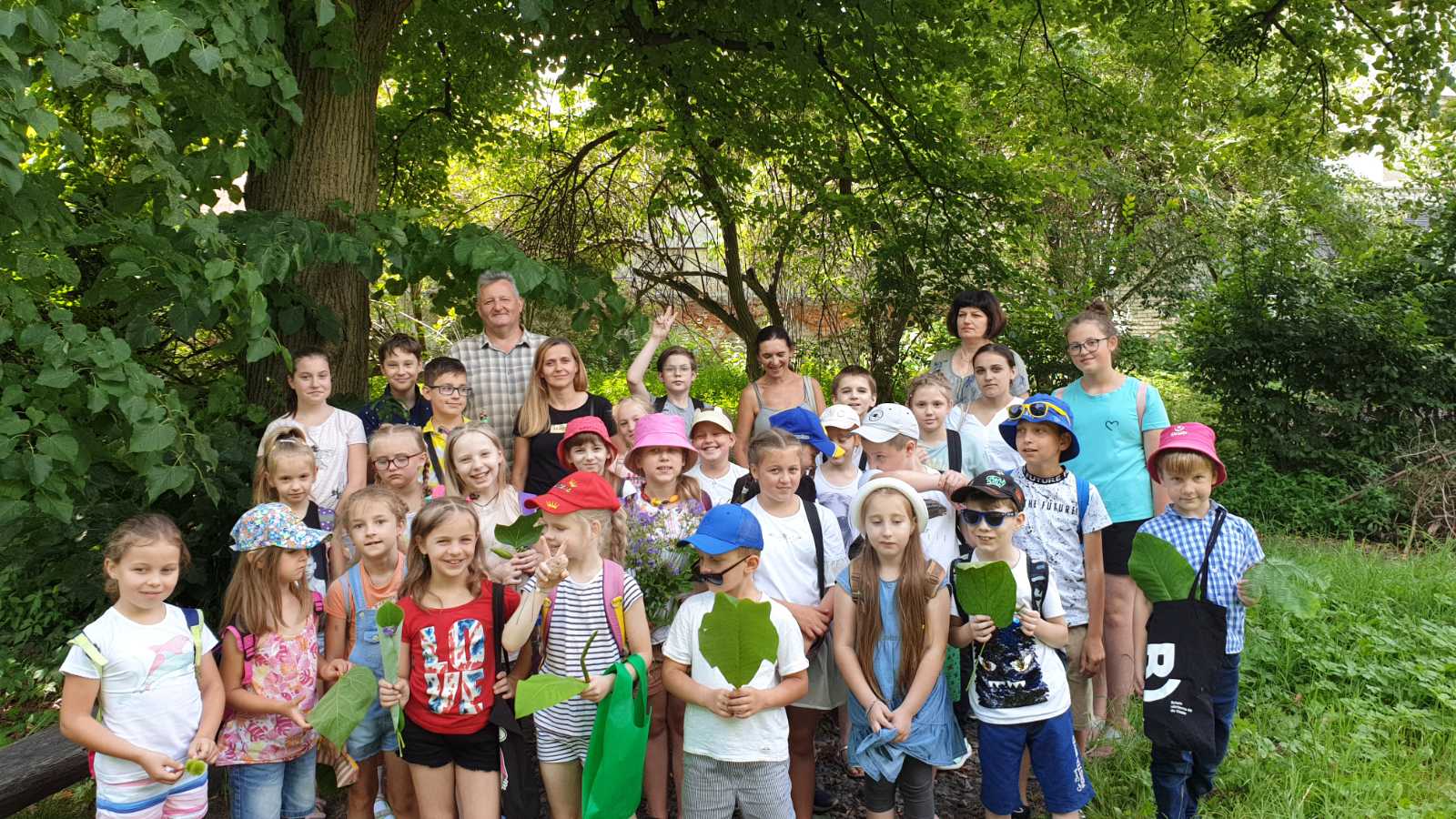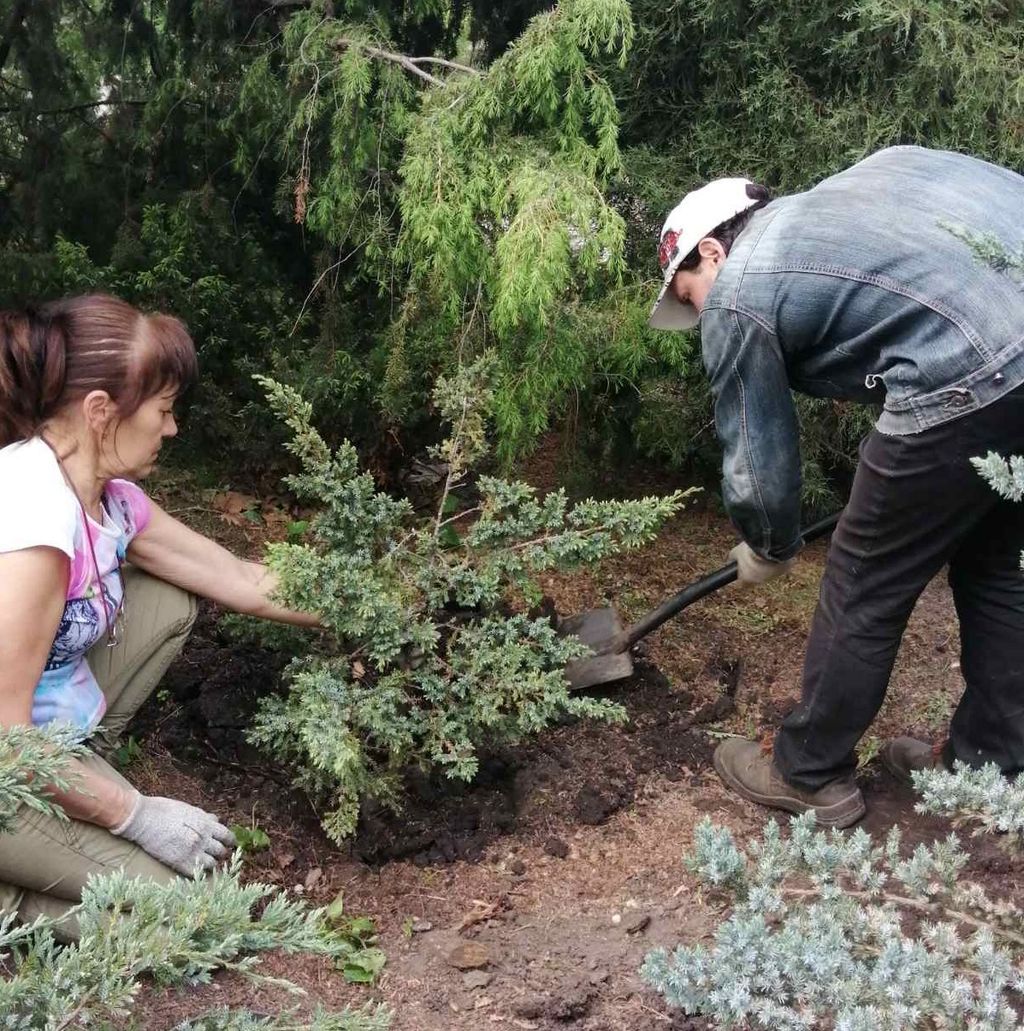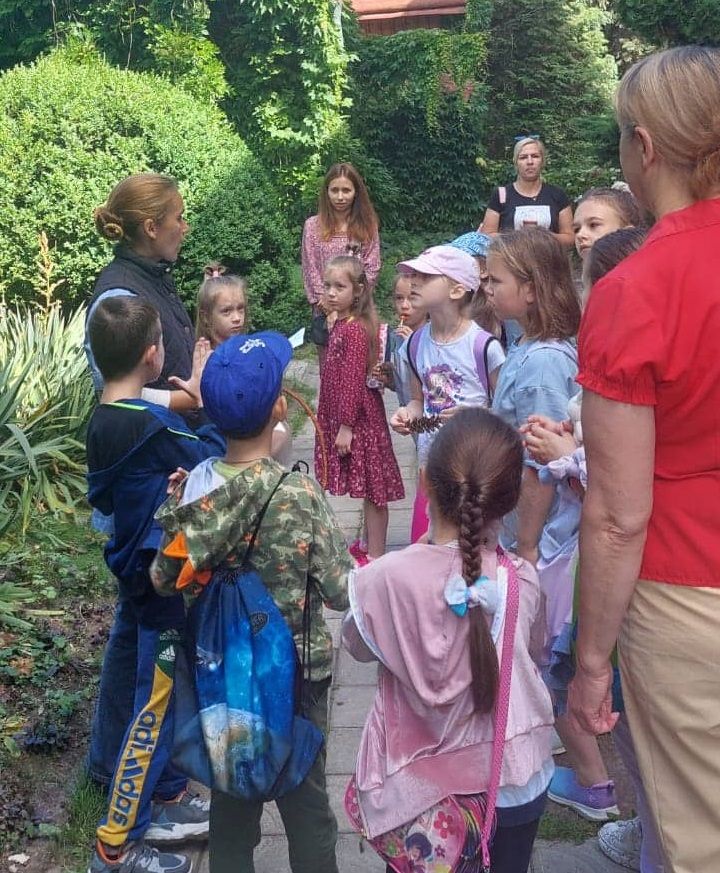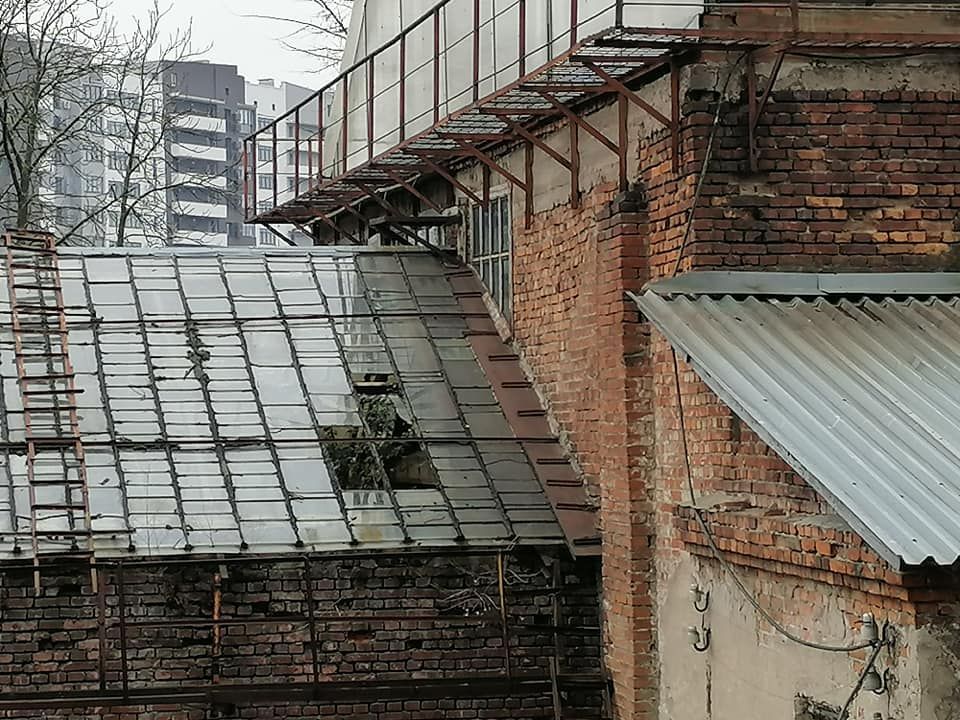Ivan Franko Lviv BG
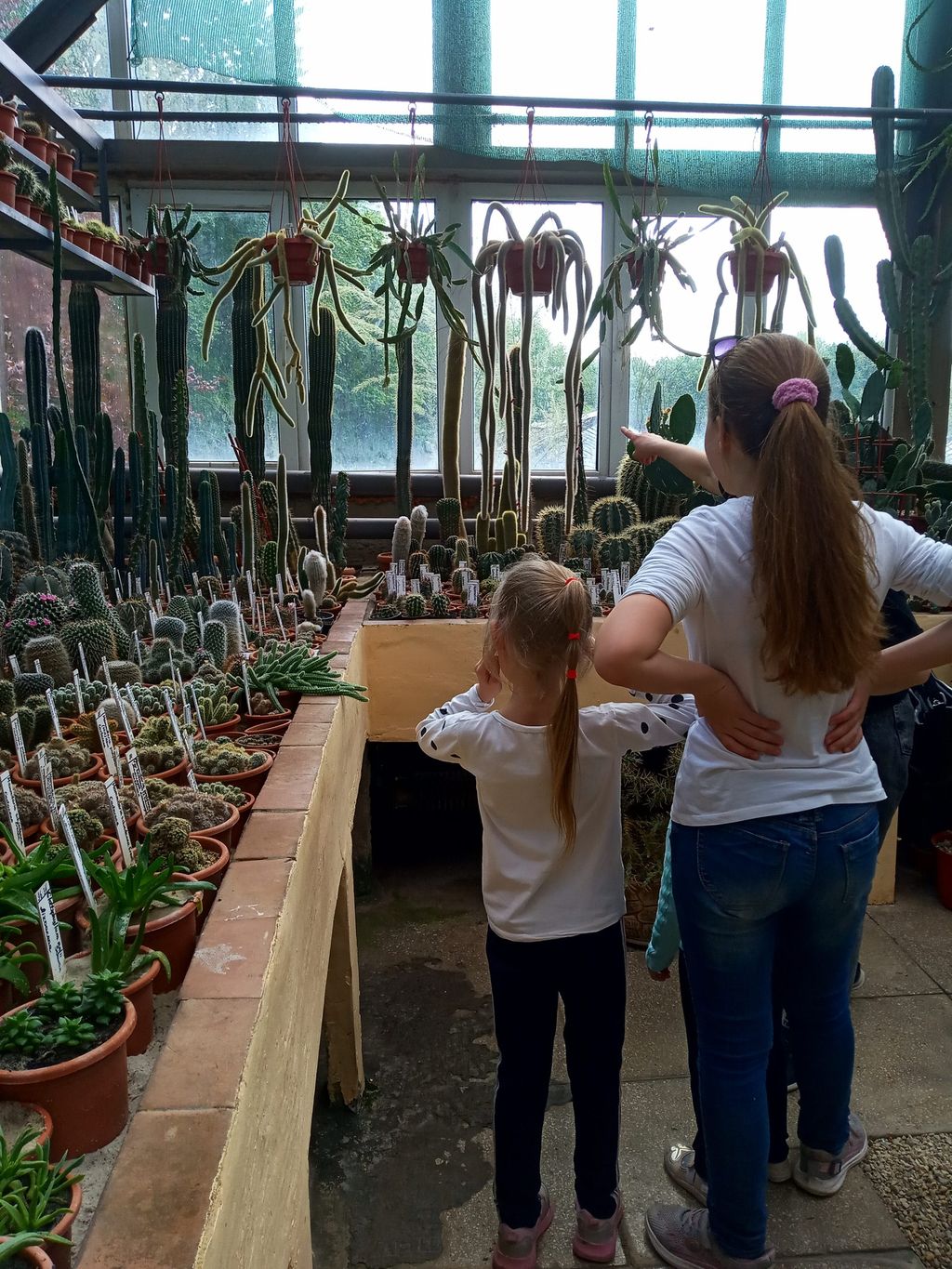
-
Status of project
Completed -
Region
Europe -
Country
Ukraine -
Programme
BGCI -
Workstream
Addressing Global Challenges -
Topic
Public Engagement
2022 Ukraine Botanic Garden Appeal
Ivan Franko National University of Lviv Botanical Garden
The Ivan Franko National University of Lviv Botanical Garden is the largest botanical garden in western Ukraine and one of the oldest in the country. It is one of the oldest gardens in Ukraine and Eastern Europe with a rich and diverse plant collection, comprising approximately 6,000 plant taxa. With the war waged by Russia in the Ukraine the garden has encountered financial problems which are impeding its basic operations (educational, scientific, preservation and maintenance of collections, etc.).
Collections at Lviv Botanical Garden
As one of the garden’s most prominent collections, the Collection of tropical and subtropical plants is listed in the State Register of Scientific Objects Constituting the National Heritage of Ukraine. It is among the leading collections of Eastern Europe in terms of species richness. The collection includes species such as Agathis brownii, Araucaria bidwillii, and a number of cycad and palm taxa (such as Arecastrum romanzoffianum, Phoenix sp., Livistona australis, Sabal minor, S. mexicana, S. umbraculifera, Washingtonia filifera, as well as the rare Howea belmoreana, H. forsteriana, Phoenix rupicola, and Ph. theophrasti). It also holds collections for 85 species which are listed as threatened under the IUCN Red List.
Activities that the 2022 Ukraine Botanic Garden Appeal will support include:
- Maintenance of botanical collections and staff expertise: the forced emigration of garden employees makes it difficult to maintain botanical collections and creates an additional workload for the remaining staff. This appeal will help finance 5 botanical specialists at Lviv.
- Nature programs outside botanic gardens for refugee groups and for pre-school aged refugees: war conditions limit educational activities normally conducted in the botanical garden, in particular the “open house” events which used to attract 10,000 to 20,000 visitors. Since the war started, Lviv has become a center for many refugees from occupied territories. They need not only food, clothing, and housing, but also are eager to participate in nature outings led by professional guides from the Lviv Botanical Garden. Experienced staff members of the Botanical Garden can provide nature tours for different groups, including children, teenagers, and families to help relieve stress.
- Support of staff from other botanic gardens temporarily relocate to Lviv: the Lviv Botanical Garden will assist employees of other Ukrainian botanical gardens who have been forced to relocate to Lviv and its surrounding areas. The Director of the Lviv Botanical Ggarden will oversee these arrangements.
- Rehabilitation treatment program “Nature Heals” for military veterans: the directors and 3 qualified staff members will provide rehabilitation treatment for military personnel under the title “Nature Heals”.
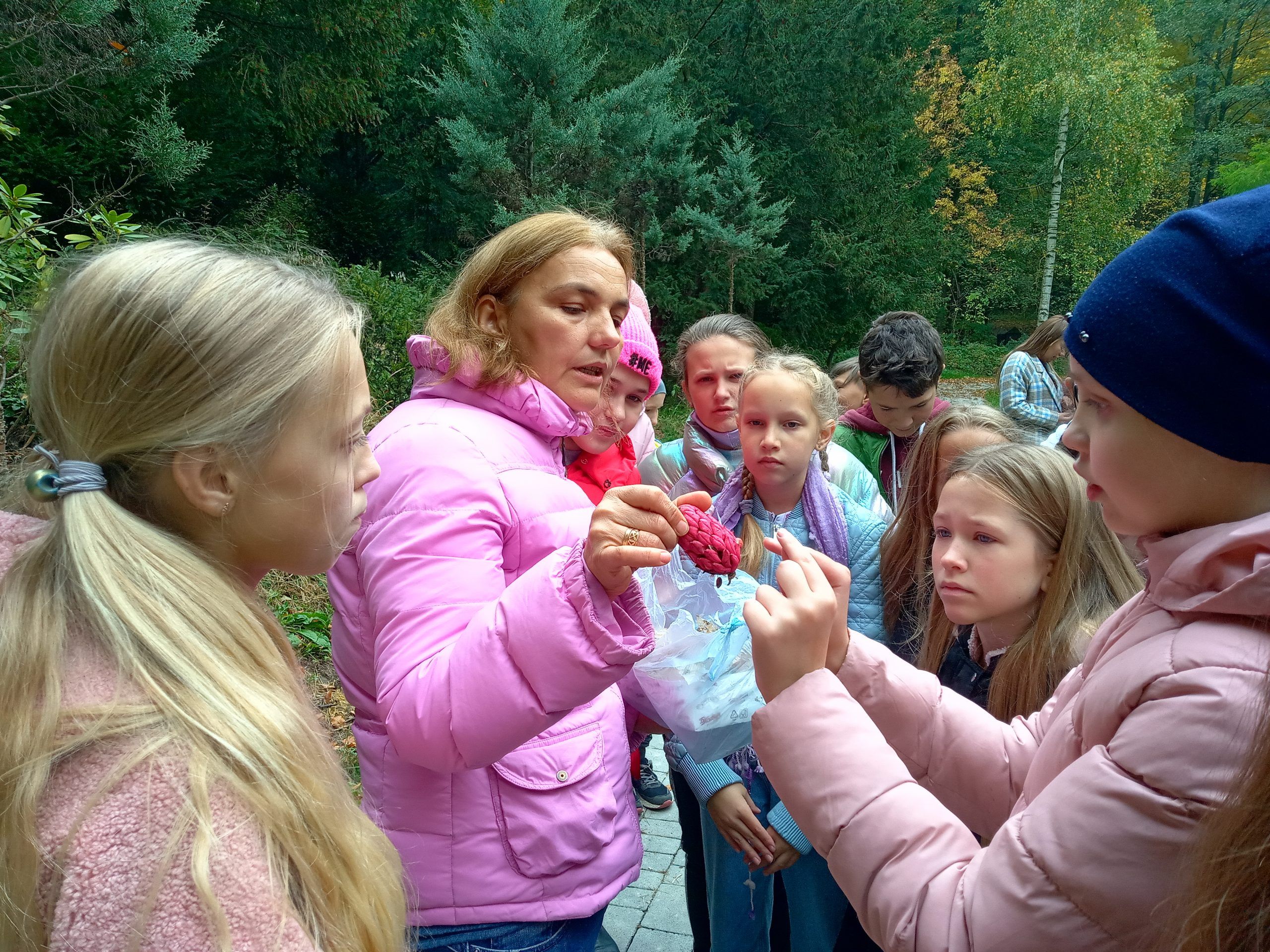
Lviv Botanic Garden
Help with refugees

Lviv Botanic Garden
Nature programme with refugess
Final reporting
How you have met your objective(s)
We have maintained the care for the BG’s collections during the forced emigration of five Garden’s employees. Due to the limitation of educational activities in the Garden in wartime, the Garden’s employees have conducted one and a half dozen excursions and classes with internally displaced people in parks, namely: nature thematic classes in modular towns; nature interactive classes in kindergartens; eco-educational activities for schoolchildren in summer camps. “Nature heals” rehabilitation measures for servicemen who are being treated after combat wounds in Lviv hospitals. Transfers related to getting to places of events, as well as transporting wounded soldiers to BG.
Describe the impact(s) of your project
We have gained new experience in eco-educational work with internally displaced people in the green spaces of the city. For the displaced people, it was a new and interesting learning about the value of natural resources, which had a positive emotional effect. Wounded soldiers had the opportunity to disconnect from painful stresses among plants in the Botanical Garden. An additional financial support of Garden employees made it possible to provide full care for the plant collections. The project allowed preserving the human potential of the Botanical Garden, but also helped to grasp new forms of educational and conservation work.
